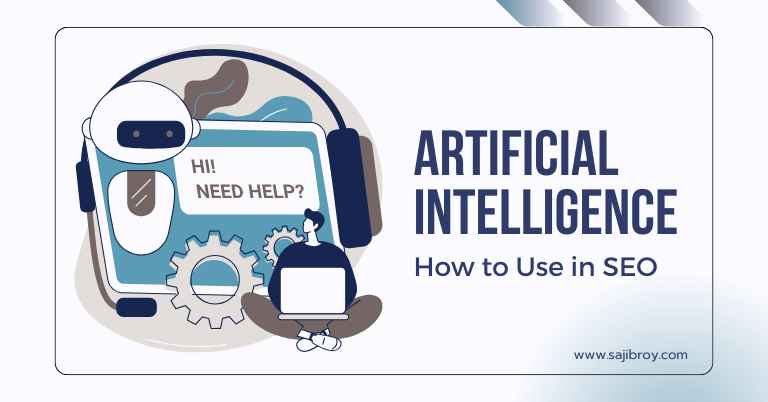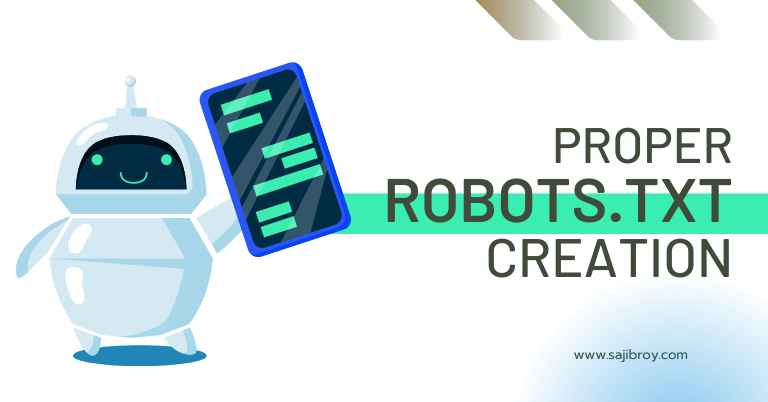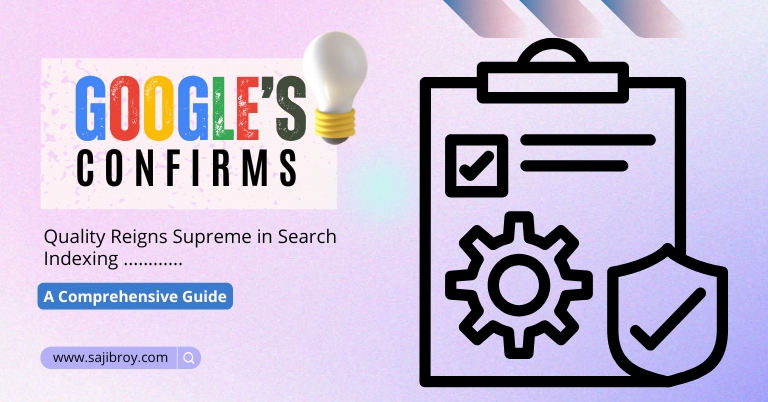Artificial intelligence will revolutionize the future by transforming multiple industries and enhancing human capabilities. With its vast potential for automation, machine learning, and natural language processing, ai will drive efficiency, innovation, and personalized experiences for individuals and businesses alike.
As ai continues to evolve, it holds the power to reshape education, healthcare, transportation, and more. The integration of ai-driven technologies into education will enable personalized learning experiences for students, while in healthcare, ai can aid in diagnosis and treatment decisions.
Furthermore, autonomous vehicles powered by ai will redefine transportation and improve road safety. Moreover, ai-powered chatbots and virtual assistants will enhance customer experiences, and ai algorithms will optimize business operations through data analysis and predictive modeling. As ai becomes more advanced and accessible, its influence will permeate every aspect of our lives, ushering in a future that is interconnected, efficient, and user-centric.
Let's See the Topic Overview
Enhancing Efficiency In Manufacturing And Logistics
In today’s rapidly evolving technological landscape, artificial intelligence (ai) is poised to revolutionize various industries, including manufacturing and logistics. With its ability to analyze vast amounts of data and make intelligent decisions, ai can significantly enhance efficiency in these sectors.
Let’s explore how ai is transforming manufacturing and logistics processes.
Automation Of Repetitive Tasks
- One of the key benefits of ai in manufacturing and logistics is the automation of repetitive tasks. By delegating these mundane and time-consuming activities to ai-powered systems, businesses can free up human resources to focus on more complex and strategic tasks.
- Ai can automate various activities in manufacturing, such as quality control, assembly line operations, and equipment maintenance. By employing machine learning algorithms, ai systems can learn from patterns and continuously improve their performance, resulting in increased accuracy and productivity.
- In logistics, ai can automate inventory management, route optimization, and warehouse operations. This enables businesses to streamline their supply chains, minimize human error, and improve overall efficiency.
Streamlining Supply Chain Management
- Effective supply chain management is crucial for businesses to remain competitive. By harnessing the power of ai, organizations can streamline their supply chain processes and gain a competitive edge.
- Ai-driven systems can predict demand patterns, detect potential bottlenecks, and optimize inventory levels. This helps businesses reduce costs, minimize waste, and ensure timely delivery of products.
- Ai can also enhance supplier management by providing real-time insights into supplier performance and reliability. By leveraging these insights, businesses can make informed decisions and maintain strong relationships with their suppliers.
Improving Predictive Maintenance
- Breakdowns and unexpected maintenance issues can disrupt manufacturing operations and lead to costly downtime. Ai can help mitigate these challenges by enabling predictive maintenance.
- By analyzing data collected from various sensors and equipment, ai algorithms can identify patterns and predict potential failures before they occur. This allows businesses to schedule maintenance proactively, optimize spare parts inventory, and minimize unplanned downtime.
- Ai can also assist in optimizing maintenance schedules based on real-time data, usage patterns, and environmental conditions. This proactive approach helps businesses prevent disruptions, reduce repair costs, and ensure smooth operations.
Enhancing Resource Allocation
- Ai algorithms can analyze vast amounts of data to optimize resource allocation in manufacturing and logistics. By considering factors such as production capacity, customer demand, and supply chain constraints, ai systems can make data-driven decisions to maximize efficiency.
- In manufacturing, ai can optimize production schedules, allocate resources effectively, and minimize idle time. This ensures optimal utilization of machinery, manpower, and materials.
- In logistics, ai can optimize delivery routes, allocate vehicles based on load requirements, and reduce fuel consumption. This not only improves operational efficiency but also reduces the environmental impact of transportation.
As ai continues to advance, it holds the potential to revolutionize manufacturing and logistics by enhancing efficiency, optimizing processes, and driving productivity. By embracing ai-driven solutions, businesses can stay ahead in the rapidly changing landscape and unlock new opportunities for growth.
Revolutionizing Healthcare With Ai-Powered Innovations
Artificial intelligence (ai) is revolutionizing various industries, and healthcare is no exception. The potential of ai-powered innovations in healthcare is immense, with the ability to transform the way diseases are diagnosed, treated, and managed. In this section, we will explore how ai is revolutionizing healthcare with its remarkable capabilities.
Early Disease Detection
Early detection is crucial in effectively treating diseases and improving patient outcomes. Ai-powered technologies are playing a pivotal role in early disease detection by analyzing vast amounts of patient data and identifying patterns that might signify the presence of a particular condition.
Here are the key points:
- Ai algorithms can swiftly analyze medical images such as x-rays, mris, and ct scans, allowing for more accurate and efficient detection of abnormalities.
- By analyzing patient records and symptoms, ai systems can provide early warnings for conditions like sepsis, heart attacks, and various types of cancers.
- Machine learning algorithms can identify specific biomarkers or genetic patterns associated with diseases, aiding in the early detection of conditions that may have a genetic component.
Precision Medicine And Personalized Treatment
Ai is paving the way for precision medicine, an approach that takes into account each individual’s unique genetic makeup, lifestyle, and environmental factors when designing treatment plans. Here are the key points:
- Ai algorithms can analyze vast amounts of patient data, including genetic information, medical records, and treatment outcomes to identify patterns and correlations.
- This analysis enables healthcare providers to develop personalized treatment plans tailored to each patient’s specific needs, increasing the chances of successful treatment and minimizing adverse effects.
- Ai-powered tools can assist doctors in selecting the most appropriate medications and dosages based on a patient’s genetic profile, reducing the risk of adverse reactions and maximizing the effectiveness of treatments.
Ai-powered innovations are revolutionizing healthcare by enabling early disease detection and facilitating precision medicine. With the ability to analyze vast amounts of data, identify patterns, and provide insights, ai is propelling the healthcare industry into a future where diagnoses are more accurate, treatments are personalized, and patient outcomes are improved.
Embracing ai in healthcare holds the promise of transforming the way we approach medical care and ultimately shaping a healthier future for all.
Empowering Financial Services With Artificial Intelligence
Artificial intelligence (ai) has already revolutionized various industries, and its impact on the future is only set to grow. In this blog post section, we’ll delve into how ai is empowering the financial services sector. From improved fraud detection and prevention to enhanced customer experience through chatbots, let’s explore the exciting potential ai holds for the financial world.
Improved Fraud Detection And Prevention
Ai-powered technologies are making significant strides in detecting and preventing fraudulent activities in the financial services industry. Here are some key points to consider:
- Machine learning algorithms can analyze vast amounts of data to identify patterns, anomalies, and potential risks associated with fraudulent transactions.
- Ai systems can continuously learn from past incidents and fine-tune their detection capabilities, staying one step ahead of fraudsters.
- Real-time monitoring using ai algorithms enables financial institutions to quickly identify and respond to suspicious activities, minimizing potential losses.
- Ai can automate the process of identifying fraudulent claims in insurance, reducing manual effort and improving accuracy.
- By integrating ai with existing fraud detection systems, financial institutions can enhance their ability to safeguard their customers’ assets.
Enhanced Customer Experience Through Chatbots
The advent of ai-powered chatbots has transformed the way financial institutions interact with their customers. Here’s how chatbots are revolutionizing the customer experience:
- Chatbots provide instant and personalized customer support, available 24/7, reducing wait times and improving overall satisfaction.
- Through natural language processing, chatbots can understand and respond to customer queries, providing accurate information and guidance.
- Ai-powered chatbots can analyze customer behavior, preferences, and transactions to offer personalized recommendations and financial advice.
- Chatbots streamline routine tasks such as balance inquiries, fund transfers, and bill payments, enabling customers to perform tasks efficiently and conveniently.
- The use of chatbots frees up human agents to handle more complex and high-value interactions, optimizing workforce productivity.
Ai is empowering the financial services sector by revolutionizing fraud detection and prevention mechanisms and enhancing the overall customer experience through innovative chatbot solutions. As this technology continues to advance, we can expect even more transformative changes in the future.
Stay tuned to explore how ai will shape the financial landscape further.
Ai-Powered Autonomous Vehicles And Transportation
Artificial intelligence (ai) has rapidly evolved over the years, and its impact on various industries is becoming increasingly apparent. One area where ai is set to revolutionize the future is in autonomous vehicles and transportation. Advancements in self-driving technology and the potential impact on transportation infrastructure are topics that are worth exploring.
Advancements In Self-Driving Technology
The progress made in self-driving technology has been remarkable. Here are some key advancements in this field:
- Improved perception systems: Ai-powered autonomous vehicles rely on advanced perception systems such as cameras, radar, and lidar to gather data about their surroundings. These systems have become more sophisticated, enabling vehicles to better understand and interpret their environment.
- Enhanced decision-making capabilities: Ai algorithms have been developed to analyze vast amounts of data and make real-time decisions. This allows self-driving vehicles to navigate through complex traffic scenarios, respond to unpredictable situations, and prioritize safety.
- Machine learning: Self-driving technology utilizes machine learning techniques to continuously improve vehicle performance. By analyzing patterns and experiences, autonomous vehicles can become more efficient and reliable over time.
- Vehicle-to-vehicle communication: Ai also enables vehicles to communicate with each other, sharing crucial information such as traffic conditions and potential hazards. This collective intelligence helps to optimize traffic flow and enhance overall safety.
Potential Impact On Transportation Infrastructure
The widespread adoption of ai-powered autonomous vehicles is expected to have a profound impact on transportation infrastructure. Here are some potential effects:
- Reduced congestion: With self-driving technology, vehicles can operate more efficiently, optimizing traffic flow and minimizing congestion. This could lead to shorter travel times and a more seamless transportation experience.
- Increased safety: Human error is a major cause of accidents on the road. Autonomous vehicles, with their advanced perception systems and decision-making capabilities, have the potential to significantly reduce the number of accidents, making our roads safer.
- Improved accessibility: Self-driving technology has the potential to increase accessibility to transportation for individuals who are unable to drive, such as the elderly or individuals with disabilities. This can promote inclusivity and provide greater mobility options for all.
- Changes in infrastructure design: As the reliance on human drivers diminishes, transportation infrastructure may need to be reimagined. Dedicated lanes for autonomous vehicles, smart traffic lights, and updated road signage are some potential changes that may be required.
- Environmental benefits: Ai-powered autonomous vehicles have the potential to reduce fuel consumption and greenhouse gas emissions. By optimizing driving routes and improving traffic flow, these vehicles can contribute to a greener future.
Ai-powered autonomous vehicles and transportation are set to revolutionize the way we travel. With advancements in self-driving technology and the potential impact on transportation infrastructure, we can expect safer, more efficient, and accessible transportation systems in the future. It’s an exciting prospect that promises to transform the way we live and move.
Ai-Driven Predictive Analytics And Decision-Making
Artificial intelligence (ai) has transformed various industries, and its impact on the future is only going to grow stronger. One area where ai is set to greatly influence the way we make decisions is in predictive analytics. By leveraging ai-driven predictive analytics, businesses can harness big data to obtain crucial insights and make more informed decisions.
Let’s explore this topic further.
Harnessing Big Data For More Informed Decisions
- Big data is a massive collection of structured and unstructured data that organizations accumulate over time.
- Ai plays a pivotal role in analyzing this vast amount of data, extracting meaningful patterns, and providing actionable insights.
- Here are some key points to consider when it comes to harnessing big data for making more informed decisions:
- Automated data analysis: Ai algorithms enable the automation of data analysis processes, saving time and effort for organizations.
- Pattern recognition: Ai systems excel at recognizing patterns within large datasets, identifying correlations and trends that humans may miss.
- Real-time insights: Ai-driven predictive analytics provides organizations with the ability to obtain real-time insights into changing market conditions, customer behavior, and potential risks.
- Enhanced decision-making: By leveraging the power of ai, businesses can make more informed decisions based on accurate forecasts and predictions.
- Competitive advantage: Organizations that effectively utilize ai-driven predictive analytics gain a competitive edge by staying ahead of market trends, optimizing operations, and anticipating customer needs.
Automation Of Data Analysis And Pattern Recognition
- With ai driving predictive analytics, organizations can automate data analysis and pattern recognition processes, leading to the following benefits:
- Increased efficiency: Ai eliminates the manual effort required for data analysis, allowing organizations to process large volumes of data at a faster pace.
- Improved accuracy: Ai algorithms can analyze data with a high level of accuracy, minimizing the risk of human errors and biases.
- Scalability: Ai-driven analytics systems can easily scale up or down based on the volume of data, ensuring consistent and reliable results.
- Identification of hidden patterns: Ai algorithms uncover hidden patterns and correlations within the data, enabling organizations to gain deeper insights and make data-driven decisions.
- Proactive problem-solving: By detecting patterns early on, ai systems can alert organizations to potential issues or risks, enabling them to take proactive measures.
With ai-driven predictive analytics, businesses can leverage big data to gain valuable insights, optimize decision-making processes, and stay ahead of the competition. By automating data analysis and pattern recognition, ai empowers organizations to make more informed decisions, enhance efficiency, and drive innovation.
The future of decision-making is undoubtedly intertwined with ai, and businesses that embrace this technology will be better positioned to thrive in the ever-evolving landscape.
Ai In Education: Personalized Learning And Adaptive Curriculum
Artificial intelligence (ai) has the potential to revolutionize various sectors, and education is no exception. With personalized learning and adaptive curriculum, ai has the power to transform traditional education systems into dynamic and tailored experiences for students. Let’s explore how ai is set to change the future of education.
Customized Learning Experiences
- Ai enables the creation of customized learning experiences that cater to each student’s unique needs and learning style.
- Through data analysis and machine learning algorithms, ai can gather information on individual students, such as their strengths, weaknesses, and preferred learning methods.
- With this information, ai can generate personalized study plans, recommend specific learning resources, and adapt the curriculum to match the student’s pace and level of understanding.
- Customized learning experiences allow students to learn at their own pace, enhancing their engagement, motivation, and overall learning outcome.
Intelligent Tutoring And Adaptive Assessments
- Ai-powered intelligent tutoring systems can provide personalized guidance to students, acting as virtual mentors.
- These systems utilize natural language processing and deep learning algorithms to understand and respond to students’ queries, providing instant feedback and clarification.
- Intelligent tutoring systems can adapt to the student’s progress and adjust the difficulty level of the content accordingly, ensuring a challenging yet achievable learning experience.
- Adaptive assessments, powered by ai, offer personalized evaluation and feedback to students. These assessments analyze the student’s performance in real-time and tailor the questions to their skill level, providing a fair and accurate assessment of their knowledge.
Ai in education holds immense potential to improve learning outcomes and make education more accessible and inclusive for all students. From customized learning experiences to intelligent tutoring and adaptive assessments, the future of education is set to be transformed by ai.
By embracing this technology, educators can unlock new possibilities and empower students to reach their full potential. As ai continues to evolve, it will be essential for educational institutions to embrace these advancements and harness the power of ai to shape a brighter future for education.
Emphasizing The Need For Ethical Ai Development And Regulation
Ensuring Fairness And Accountability
Artificial intelligence (ai) has the potential to revolutionize various industries, from healthcare to finance, and even transportation. However, as we embrace the power of ai, it is essential to emphasize the need for ethical development and regulation. Ensuring fairness and accountability in ai applications is crucial to prevent potential harm and promote the responsible use of this technology.
Here are the key points to consider:
- Transparency in ai systems: Ai algorithms and decision-making processes should be transparent and easily understandable. It is important to have clear guidelines on how ai systems operate, ensuring accountability and enabling meaningful human oversight.
- Data bias mitigation: Ai systems heavily rely on data, and if the data used for training these systems is biased, it can lead to discriminatory outcomes. It is imperative to evaluate and mitigate biases in data to ensure fair and equitable ai applications.
- Accountability for outcomes: Developers and organizations utilizing ai technologies must take responsibility for the outcomes their systems produce. Accountability frameworks need to be in place to address any negative consequences or unintended harm caused by ai algorithms.
- Ethical decision-making: Ai systems should be designed to incorporate ethical considerations and principles. Engineers and data scientists need to prioritize ethical decision-making, ensuring that ai technologies align with societal values and do not compromise well-established ethical standards.
- Regulation and governance: As ai becomes an integral part of our lives, it is necessary to establish robust regulatory frameworks and governance mechanisms. These frameworks should address issues like data privacy, security, and the ethical implications of ai deployment.
Safeguarding Against Biases And Unintended Consequences
While ai technologies offer incredible opportunities, they also come with challenges and risks. Safeguarding against biases and unintended consequences is crucial to ensure the responsible and unbiased use of ai.
Consider the following:
- Diverse and representative dataset: Ai models should be trained on diverse and representative datasets that reflect the diversity of the real world. By using inclusive datasets, biases can be minimized, and ai systems can provide fair and unbiased outcomes.
- Continuous monitoring and evaluation: It is essential to continuously monitor and evaluate ai systems to detect and address biases and unintended consequences. Regular audits and assessments help identify potential issues in real-world applications and make necessary adjustments.
- Human oversight and intervention: Despite the advancements in ai, human oversight and intervention are crucial to ensure ethical decision-making and avoid potentially harmful outcomes. Humans should have the ability to intervene and override ai systems when necessary.
- Public input and involvement: The development and deployment of ai should involve public input, including feedback from diverse stakeholders. This ensures that the ai systems reflect the values and needs of the communities they impact, promoting fairness and accountability.
- Collaborative efforts: Addressing biases and unintended consequences of ai requires collaboration among technologists, policymakers, ethicists, and various stakeholders. By working together, we can develop guidelines, regulations, and best practices that foster ethical ai development and adoption.
As ai continues to shape our future, emphasizing the need for ethical ai development and regulation is of utmost importance. By ensuring fairness, accountability, and safeguarding against biases and unintended consequences, we can harness the full potential of ai while protecting individuals and society as a whole.
Frequently Asked Questions
How Will Artificial Intelligence Shape The Future Of Industries?
Artificial intelligence is set to revolutionize industries, enabling automation of tasks, better decision-making, and increased efficiency. From healthcare to manufacturing, ai will streamline processes, reduce costs, and improve overall performance, ultimately transforming the way industries operate in the future.
Can Artificial Intelligence Replace Human Jobs?
While ai will automate repetitive tasks, it is unlikely to replace human jobs entirely. Instead, it will augment human capabilities, allowing us to focus on more complex and creative tasks. Ai will create new job opportunities, requiring skills in data analysis, problem-solving, and collaboration with ai systems.
How Will Artificial Intelligence Impact The Healthcare Sector?
Ai will revolutionize healthcare, enabling early disease detection, personalized treatments, and improved patient care. Machine learning algorithms will analyze vast amounts of medical data, leading to faster diagnosis, better patient outcomes, and more efficient healthcare delivery systems. Ai will transform the way medical professionals provide care in the future.
Conclusion
Artificial intelligence (ai) is revolutionizing our world, and its impact on the future cannot be underestimated. From healthcare to transportation, ai is transforming industries and improving the way we live and work. As we continue to embrace ai technologies, we can expect significant advancements in various fields, such as personalized medicine, autonomous vehicles, and smart cities.
With ai-powered algorithms and automation, processes will become more efficient, leading to increased productivity and economic growth. However, this technological advancement also raises ethical concerns, such as job displacement and privacy issues. It is important for society to proactively address these challenges and ensure that the benefits of ai are accessible to all.
The future is bright with the integration of ai, but it is crucial that we navigate this evolving landscape responsibly and ethically, in order to harness the full potential of artificial intelligence for the betterment of humanity.



![6-Month Local SEO Plan [Download Your Complete Proposal Template]](https://www.sajibroy.com/wp-content/uploads/2025/01/6-Month-Local-SEO-Plan-Download-Your-Complete-Proposal-Template.jpg)








